Key clicks
Key clicks are a versatile area of alto flute playing. The larger tube and bigger keys make key clicks more audible than on the C flute, though amplification may still be required in certain contexts. The nature of the flute's fingering system is such that after the first octave, the pitches repeat, without any change of octave. For this reason, it is advisable only to use low register pitches for key clicks. A sound can only be produced as the keys go down, and not as they lift up.
Key clicks can be combined with most forms of percussive articulation to give additional attack, and are sometimes used on accents and low register notes to assist with clarity of articulation.
Striker key clicks
Key clicks may be used purely for their percussive effect, or with a pitched sound in mind. It should be taken into consideration, however, that pitches using more closed keys will sound considerably louder than those using an open tube. The G key is normally used as a striker, and time must be given to reset the striker key between notes.
Striker only key clicks
Key click drumming
Key clicks may also be used for rhythmic effect, using a key in each hand as a striker to create drumming effects, similar to those used on a standard side drum.
Key click drumming
Non-striker key clicks
When not employing a striker key, key clicks can be created from the normal action of moving keys. It should be noted, however, that a sound is only produced from a key going downwards, and not from the upwards motion of the key mechanism, and some notes will sound louder than others due to the length of tube used.
It should also be noted that due to the flute's fingering system, key clicks are most effective with low register fingerings and registral changes may not be clear.
Key clicks with sounded pitch
Key clicks may be used simultaneously with sounded notes to create a particular kind of articulated sound, similar to a strongly tongued accent. This works most strongly when many keys are closed so that a longer tube may be used to resonate the sound.
Striker and sounded pitch key clicks
Covered key clicks
Covering the embouchure hole with the mouth for key clicks lowers the pitch of the sound by approximately a seventh, though the volume is slightly reduced. It should be noted that the pitch change varies according to the note used.
Covered key clicks
Notation of key clicks
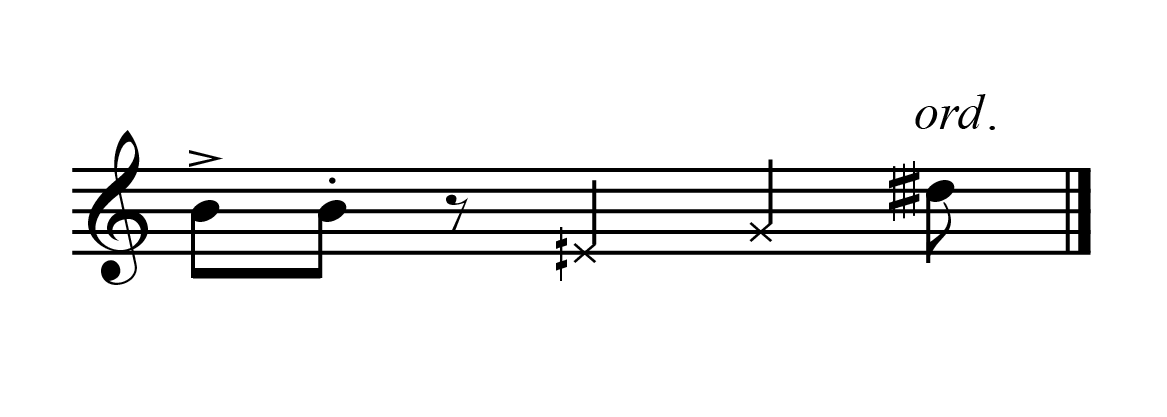
Standard key clicks
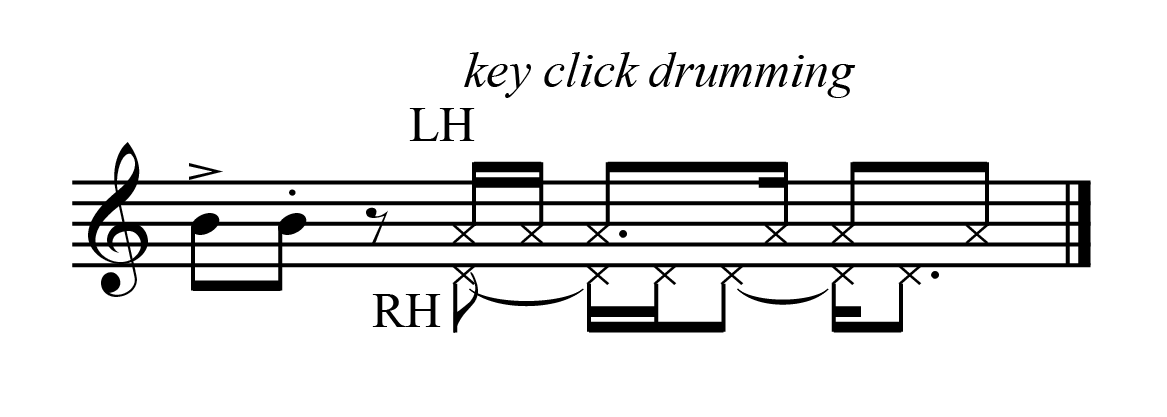
Key click drumming
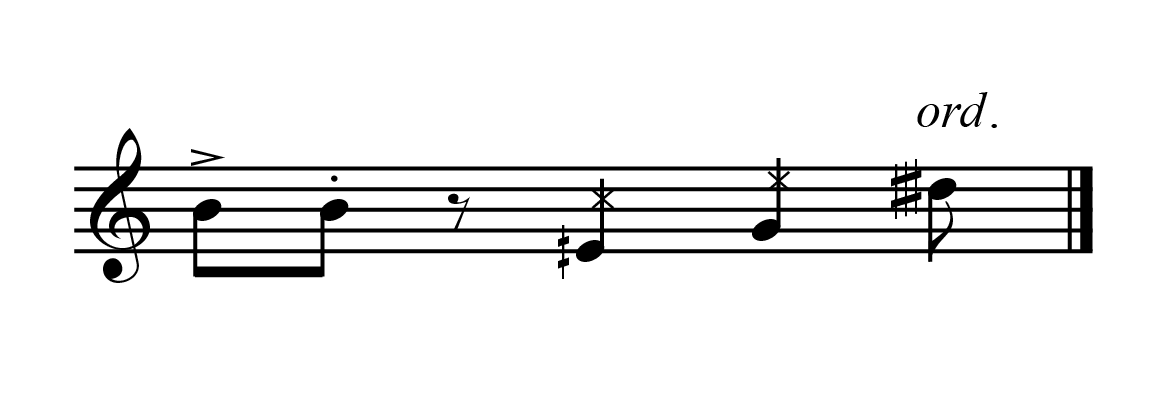
Key clicks with pitch
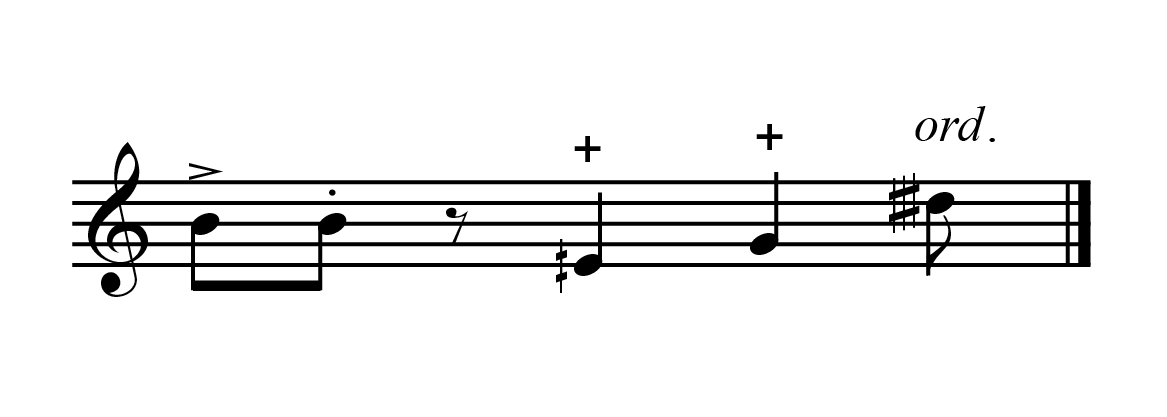
Key clicks with pitch
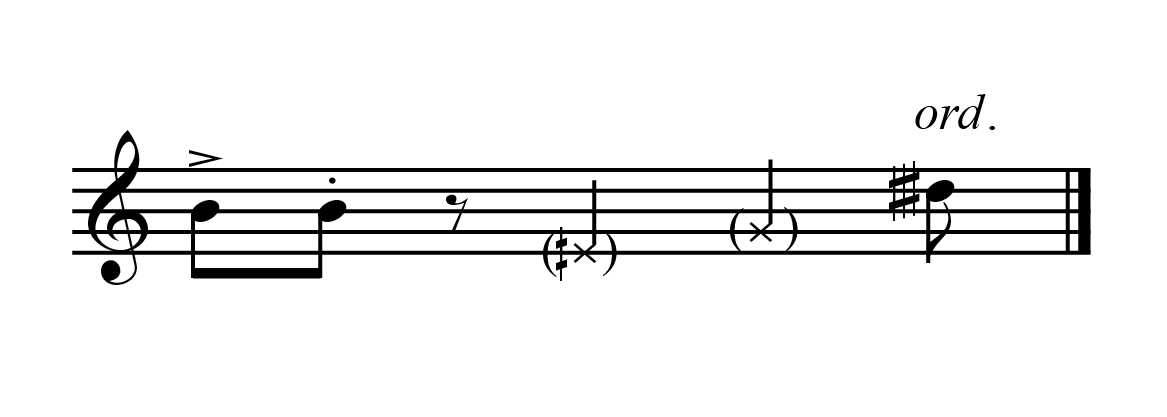
Covered key clicks